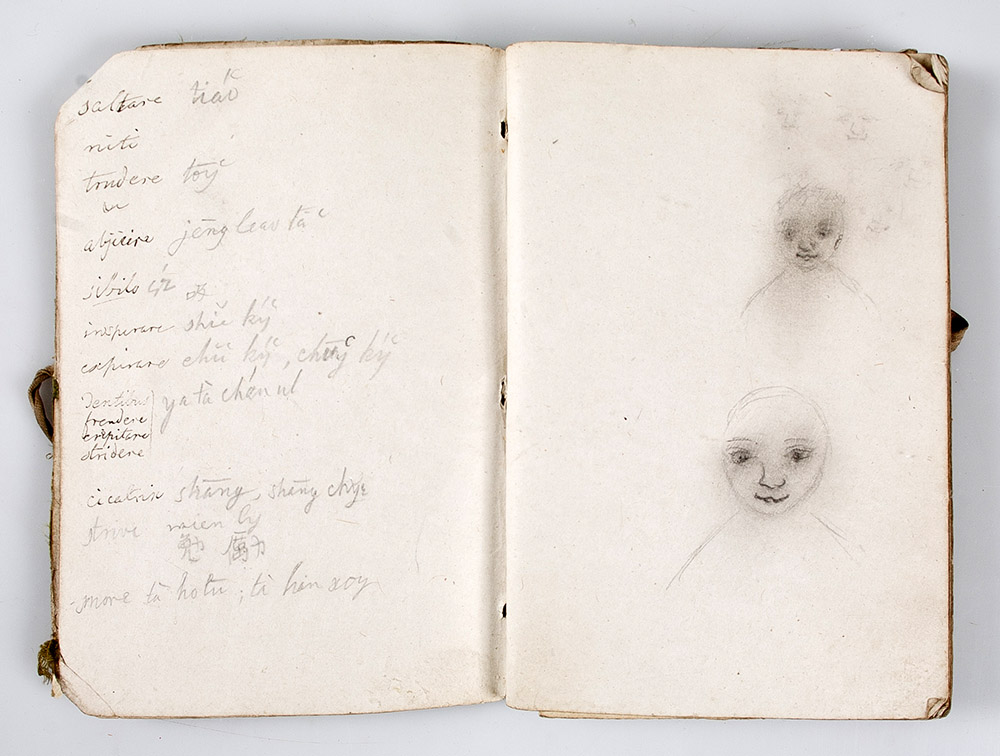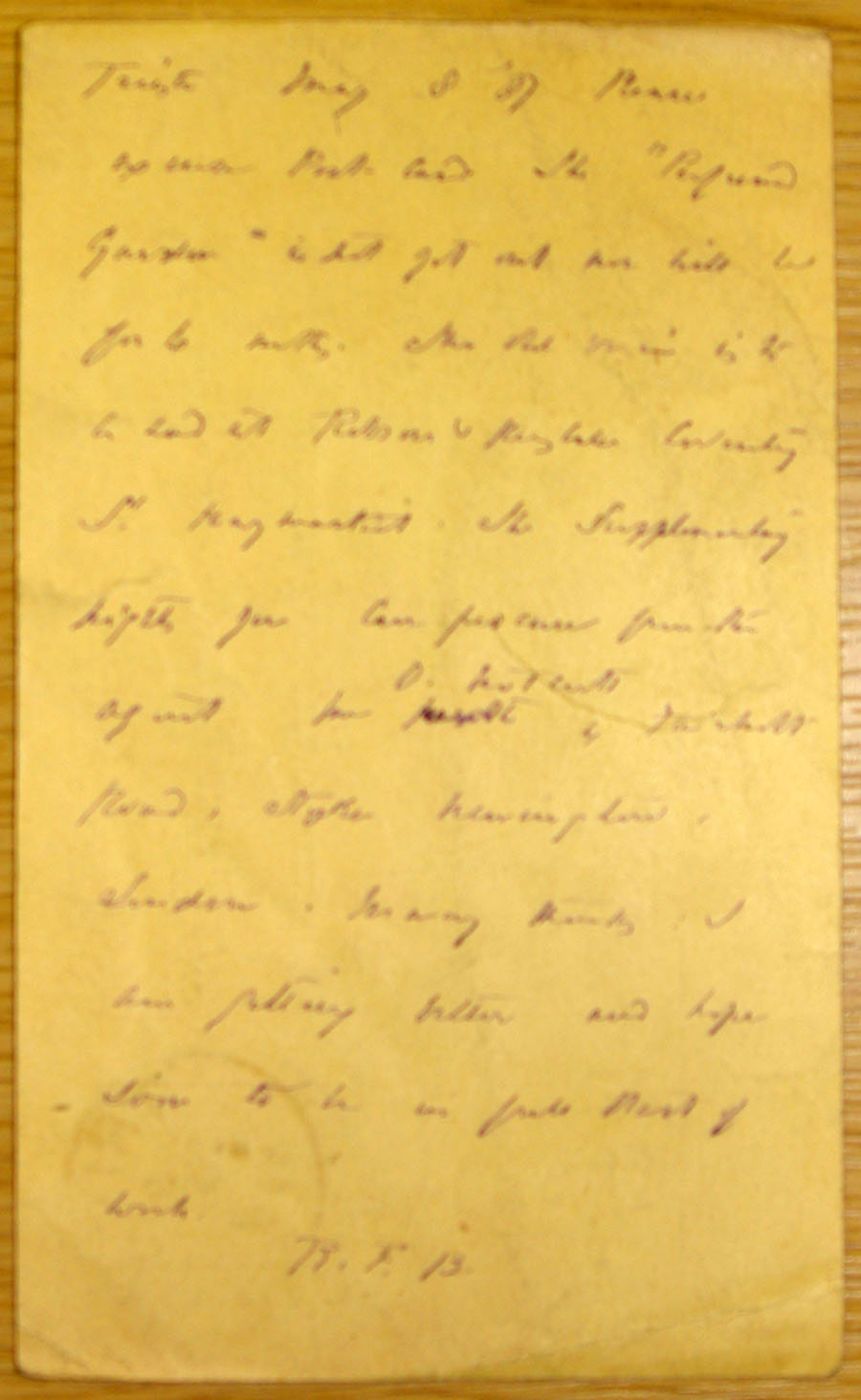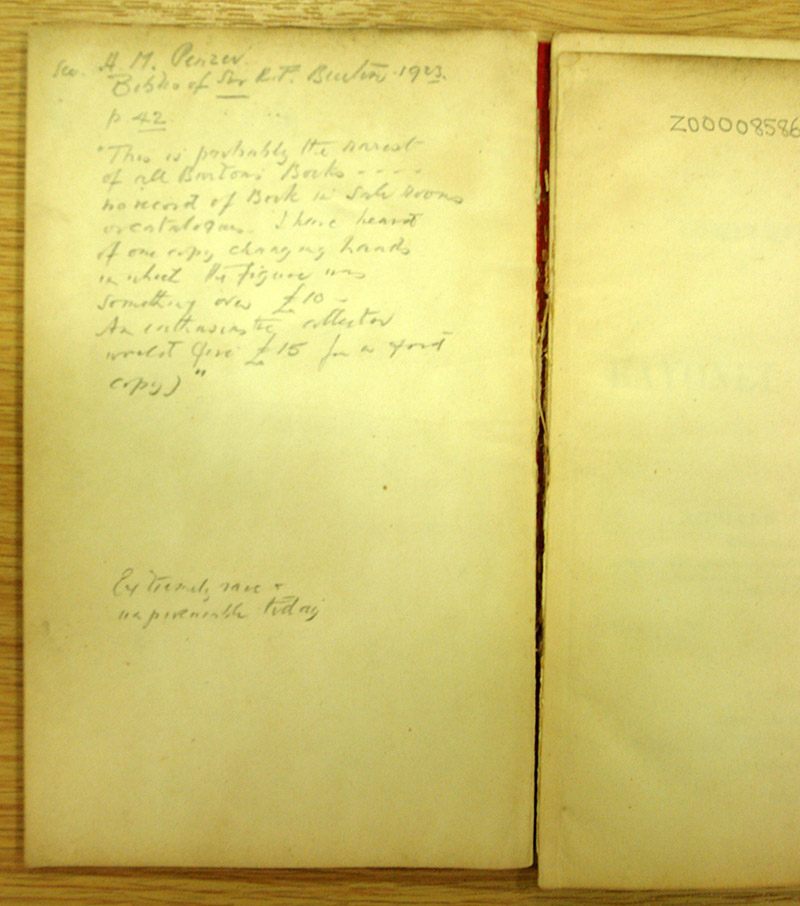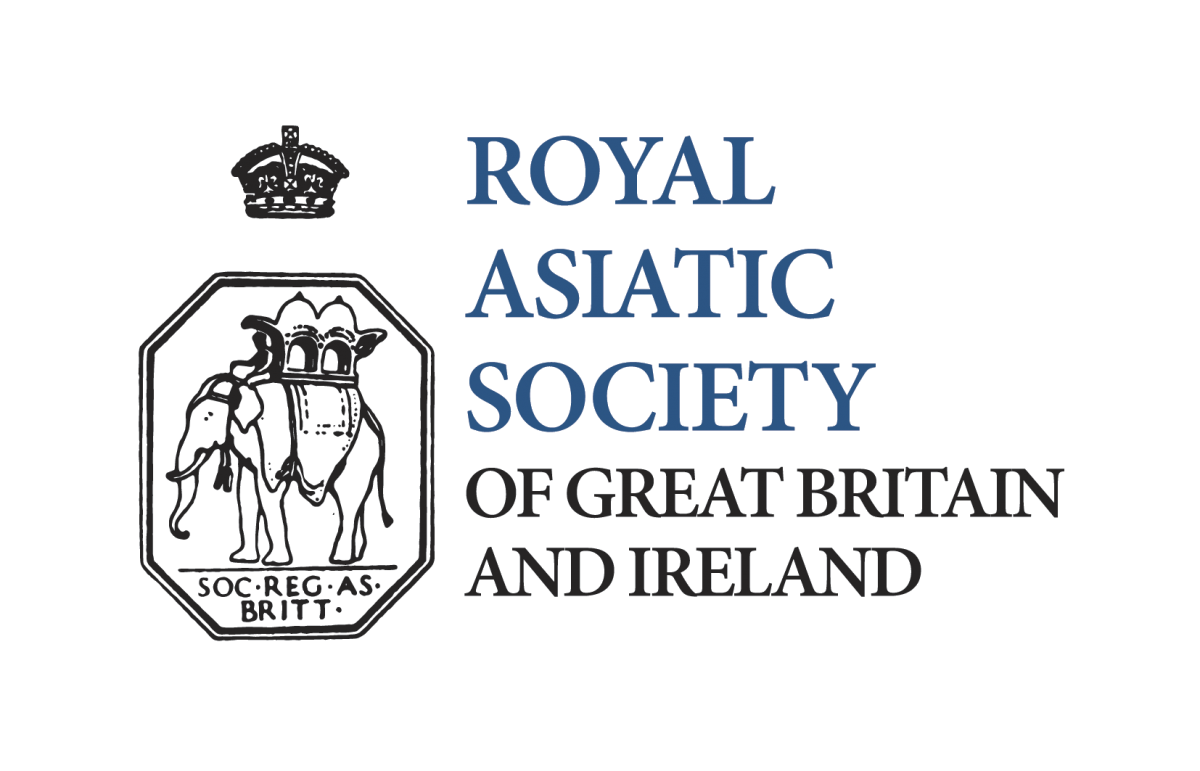Personal Papers – Thomas Manning and Richard Francis Burton
The catalogue for the personal papers of Thomas Manning has now been available for a couple of weeks via Archives Hub. They have already been of help to researchers, which for me, as an archivist, is very pleasing. We have also created a webpage for Thomas Manning which can be accessed via the Archives page. Manning will also feature on the Archives Hub website in August. The collection holds a wealth of material on a range of topics from going fishing to a riot in Canton, from mathematical theorems to epigrams, from meeting Napoleon and the Dalai Lama (not at the same time!) to receipts for gallons of brandy.

Thomas Manning was certainly a man of great ability and quite a personality, so it is exciting that researchers now have this material catalogued and available to them.
Cataloguing is now underway for the personal papers of another “character” of great ability – those of Richard Francis Burton.

Richard Francis Burton was born on 19 March 1821, the eldest son of Captain Joseph Netterville Burton and his wife, Martha. He had a peripatetic childhood living on the continent as well as England. His father wished for him to become a clergyman and therefore Burton was sent to Oxford in 1840 but managed to get himself ‘rusticated’ by attending a steeplechase against University rules.
Burton joined the Bombay Infantry of the East India Company in 1842. This was the start of his explorations and detailed recording of all that he saw. Burton was a very able linguist passing out top in the Company examinations but he was also interested in geography and ethnography including dialects and customs. Burton, as part of the Survey Company, made detailed topographical, ethnographic and linguistic notes resulting in the publication of his History of Sindh.
His life was full of travel and writing including travelling to Mecca and Medina in 1852, disgusied as a Muslim, and an expedition to attempt to find the source of the Nile under the auspices of the Royal Geographical Society of which he was a member. He visited North America in 1860 before marrying Isabel in 1861. He went, without her, to Fernando Po (Bioko), West Africa to take up his position of Consul. In 1865 he was appointed British Consul in Sao Paulo, Brazil, where Isabel accompanied him, and then subsequently in Damascus. In 1872, they moved to Trieste to work in the Consulate and from here he explored the mines at Midian. In 1886 he was made a Knight of the Order of St Michael and St George.
He died on 20 October 1890. Burton was a prolific writer and his travels provided him with material for many books. He was also a keen translator including translating The Arabian Nights stories and the poems of the Portugese poet, Cameons.
This is just a snapshot of his life. Many biographies have been written about him including by his wife, Isabel. She, too, was an interesting character and the RAS Burton papers also include some of her material.
The material has all been repackaged and listed ready to go on to the online catalogue. I am grateful to Selene Obolensky, a MA Archives and Records Management Student who volunteered here and began the process of sorting the material. I am also grateful to Bernadette Rivett and Mary S. Lovell who in March 2000 compiled a list of the whole Burton collection – the books and pamphlets as well as the archives. Mary S. Lovell wrote A Rage to Live: A biography of Richard and Isabel Burton which I am enjoying reading as I prepare the catalogue.
Within the papers are some letters from Richard Burton to Alexander George Ellis, a curator at the British Museum.

This correspondence is interesting because it reveals the projects on which Burton was working in the period 1887-1890. It has further interest to the RAS, because Ellis was Honorary Librarian at the Society from 1919 to 1937. He is known for his Catalogue of the Arabic Books in the British Museum which was published in 1894 and for jointly authoring a further supplement in 1926.
The archives also include a rare pamphlet of Burton’s A Complete System of Bayonet Exercise published in 1853. A note on the inside cover makes reference to the rarity of this book.


There are other publications by and about Burton within the Papers, some of which are also rare editions. The Burton Collection of both papers and books were donated by Lewis Christopher Loyd in 1939. He acquired the material upon the death of Oscar Eckenstein, and the papers have correspondence about the acquisition of the Collection by the RAS, including the need to purchase of a bookcase especially to house the material. Eckenstein, was another interesting individual – his life and connection with Richard Burton will be explored in a future blog.
